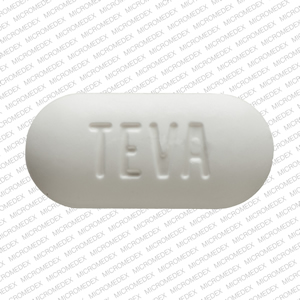Sucralfate Dosage
Medically reviewed by Drugs.com. Last updated on Feb 24, 2025.
Applies to the following strengths: 1 g/10 mL; 1 g
Usual Adult Dose for:
Additional dosage information:
Usual Adult Dose for Duodenal Ulcer
1 g orally 4 times a day
- Duration of therapy: 4 to 8 weeks
Comments:
- Each dose should be taken on an empty stomach.
- For most patients, treatment should continue for 4 to 8 weeks; however, treatment may be stopped early if healing is demonstrated on x-ray/endoscopic tests.
- Antacids may be given, but use should be separated by at least 30 minutes.
Use: Short-term treatment of active duodenal ulcers
Usual Adult Dose for Duodenal Ulcer Prophylaxis
Oral Tablets: 1 g orally 2 times a day
- Duration of therapy: Up to 1 year
Comments:
- Each dose should be taken on an empty stomach.
- Controlled studies did not extend beyond 12 months.
Use: Maintenance therapy for patients after healing of acute duodenal ulcers
Renal Dose Adjustments
Use with caution.
Liver Dose Adjustments
Data not available
Dose Adjustments
Elderly patients: Patients should be started on the low end of the dosing range, and renal function monitoring should be considered.
Precautions
Safety and efficacy have not been established in pediatric patients.
Consult WARNINGS section for additional precautions.
Dialysis
Use with caution.
Other Comments
Administration advice:
- The oral solution should be thoroughly shaken before use.
- Some oral tablet formulations may be dispersed in 10 to 15 mL of water for easier administration.
- Nasogastric administration for stress ulcer prophylaxis should be separated from enteral feeding by at least 1 hour.
Storage requirements:
- The manufacturer product information should be consulted.
General:
- Patients may experience symptom improvement within 1 to 2 weeks of treatment, but should continue to take this drug for the entire course of therapy.
- There are approximately 14 to 16 acid-neutralizing mEq in a 1 g dose.
- There are no data regarding equivalence between the suspension and tablet formulations.
- Treatment may increase the risk of bezoar formation (concretions of undigested materials found primarily in the stomach).
Monitoring:
- Blood glucose in patients with diabetes who are receiving the oral suspension formulation
- Renal function, especially in patients with renal impairment or those at risk of developing toxicity (e.g., elderly patients)
Patient advice:
- Patients should be instructed to wait 30 minutes before taking antacids.
- Patients should be encouraged to complete a course of treatment, even if symptom relief occurs within the first weeks.
- Patients should be advised to report any signs/symptoms of bezoar formation such as abdominal pain, nausea, vomiting, feeling of gastric fullness, and unexplained weight loss.
- Patients with renal impairment should be told to report signs/symptoms of aluminum toxicity such as dizziness, memory loss, seizures, muscle weakness, and/or bone and joint pain.
- Inform patients that this drug may cause dizziness and/or drowsiness, and they should avoid driving or operating machinery until the full effects of the drug are seen.
More about sucralfate
- Check interactions
- Compare alternatives
- Pricing & coupons
- Reviews (243)
- Drug images
- Latest FDA alerts (2)
- Side effects
- Patient tips
- During pregnancy
- Support group
- Drug class: miscellaneous GI agents
- Breastfeeding
- En español
Patient resources
Other brands
Professional resources
Other brands
Related treatment guides
See also:
Further information
Always consult your healthcare provider to ensure the information displayed on this page applies to your personal circumstances.


